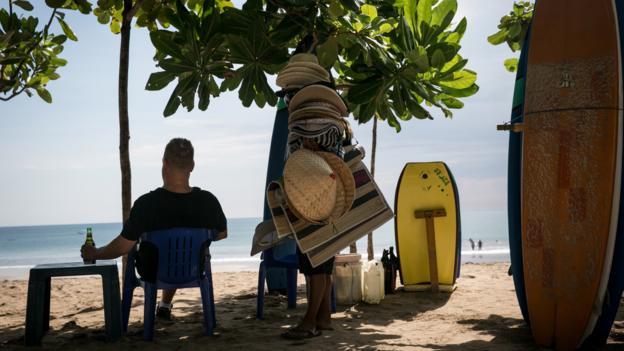Editor’s Note (26 December 2015): BBC Capital brings you one of our most-read stories on where you can live well on a budget.
Paying for the roof over your head is eye-wateringly expensive, and economising is getting you nowhere fast. So, could there be a simpler, easier life?
We went to question-and-answer site Quora to find the best place in the world to live cheaply — with great weather and reliable internet of course.
After all, no idyllic paradise is complete without speedy wi-fi.
South East Asia was top of the list for many Quora users.Jingcho Yang suggested Bali, Indonesia, for “rockstar living on backpacker budgets”.
The weather is balmy and beaches are “pretty awesome,” Yang wrote. “There's a few hundred beaches around the circumference of the island. Most are still 'undiscovered' by outsiders.”
Two-bedroom homes in good neighbourhoods cost about $200 per month, Yang wrote, and luxuries such as top-flight French cuisine cost a third of the price of major cities, because of the island’s huge, competitive hospitality industry. A two-hour spa treatment is $20, and pool villas go for less than $100 per night, she said.
“Bali rivals any major city I've been to in terms of diversity and sophistication in dining, nightlife and design,” Yang added. “It's home to some of the world's best beach lounges and clubs. An endless list of sporting activities, yoga, water-sports.”
Plus, Yang wrote, there's a “growing niche of digital nomads on the island too”, with the locus around Ubud town.
Meanwhile, teacher Nathan Edgerton wrote in 2011 that he was living in Chiang Mai, Thailand, where he was sharing a house with a friend for just $70 per month. “I eat out for every meal, even though it's generally at cheaper Thai restaurants. I have plenty of money to go out drinking with friends and to train at a kick-boxing gym. I can do all this easily for under $700 per month,” he wrote.
“Chiang Mai is a great place to live, but you could live pretty much anywhere in Thailand with similar expenses,” he added.
For Spanish speakers, there’s Latin America. Brian Fey has been living “frugally” in Mexico since 2004 and it has become more and more popular with expats. “Where I live there are people from Argentina, France, Belgium, Germany, Canada, the USA, Switzerland, Chile, etc,” he wrote.
Getting six-month or longer-term visas is fairly “easy” for people from most nationalities, he wrote. Fey added that despite the negative news stories about violence in Mexico, “it is quite safe and there are millions of expats from other countries. Some areas have concentrations of expats: Ajijic, San Miguel de Allende and Patzcauro".
He added that while renting is generally good value, there are also a large number of expats looking for house-sitters, so a responsible person “could live for free all year in very swanky places”.
Eastern Europe is also a popular choice. Mircea Goia voted for Romania, where he said you can live easily for under $1,000 per month, including food and rent, in part because the average monthly salary is only about $575 and even lower in smaller cities. Goia posted his answer in 2013.
“Real estate prices have dropped dramatically as well, thanks to the global crisis, so you can buy a cheaper home/apartment/land,” Goia wrote. Those who wish to rent in the capital, Bucharest, should expect to pay around $200 to $500 per month, he said, adding that “people are friendly towards foreigners” and many know basic English.
Whereas Chinmaya Patanaik, suggested “one of the most beautiful cities in the world”, Prague, Czech Republic, where the cost of living is lower than other western European cities.
“With $1,000, you can live quite comfortably. You can get a decent one-bedroom or a studio apartment with $400 or less. This also includes expenses on utilities such as internet, heating, electricity etc. The internet connection is very fast. I pay around $30 per month for a 100Mbps connection.”
Patanaik added, that although summers can be hot ”you can cool off with a traditional Czech beer for just $1.50.”
Quora respondents are required to use their true names under the site’s Real Names policy. To help ensure legitimacy and quality, Quora asks some individuals, such as doctors and lawyers, to confirm their expertise.


